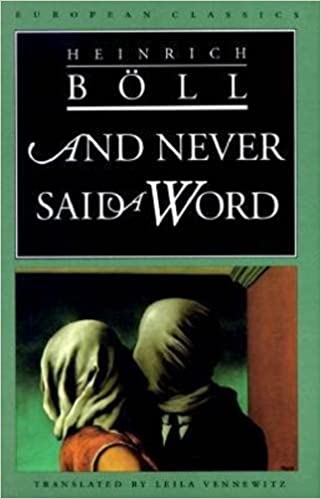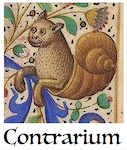Love will tear us apart: Heinrich Boll’s “And Never Said a Word”
This is the last book I finished, just about a week ago now. It was the first novel I’ve ever read by the German writer Heinrich Boll, who received the Nobel Prize in 1972. I’ve read it in English (an excellent translation by Leila Wennewitz), since my German isn’t worth a Scheiße (pardon my French).
I won’t say much except that it is a beautiful and very touching book about a poor married couple who is forced by circumstances to live apart. The period is immediate postwar Germany (the book was written in 1953). The prose style is very beautiful and lyrical and at the same time very easy to read, although I can’t say for sure how much is the merit of the writer and how much of the translator.
The story is written with alternating chapters, always one narrated from the point of view of the husband, and the next one narrated by the wife. It is an interesting device that makes us go deeper into the psychology of each character and, at the same time, it helps to mark their separation, the impossibility of their full union as a couple.
Of particular resonance are the character of Kate, her thoughts about her children, her love, her neighbours and her despair, as well as the character of an angelic young girl who works at a cafe booth at the station.
The book abounds with religious references (Böll was Catholic), including the title that alludes to a religious song – actually a Negro spiritual or African-American slave Gospel song, lyrics here, and a version of it can be heard here. But the focus is on the crisis and dissolution of the marriage despite (or because of?) the mutual love of the couple.
As the husband says to the wife at one point, in the scene which is the emotional center point of the story, as she lies with his back turned to him in the bed of a decaying hotel room:
“The lucky ones”, he said, “were those who did not love each other when they got married. It is terrible to love each other and to get married”.

